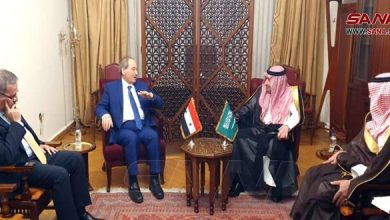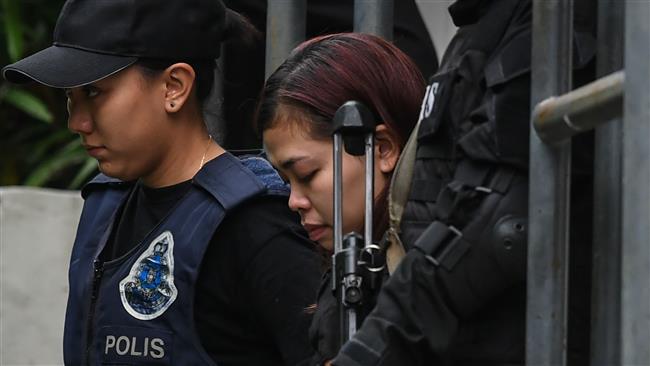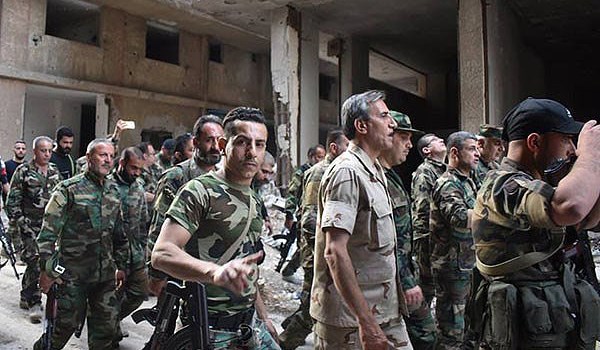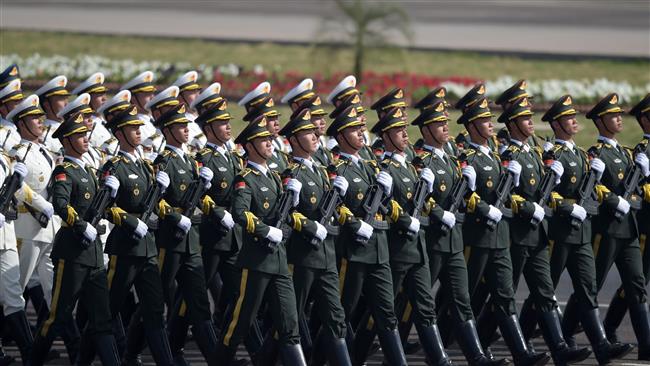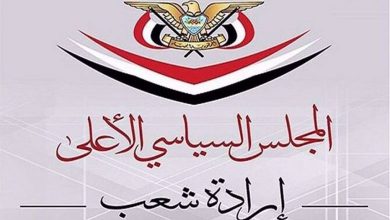Israel trying to drag US into war with Iran: Political analyst
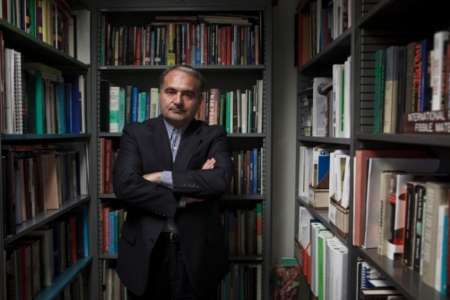

Israel, Saudi Arabia and certain elements in the the US want to see regime change in Tehran and this is a “risky situation,” a former spokesman for Iran’s nuclear negotiations team Hossein Mousavian has told BBC.
Israel’s Prime Minister Benjamin Netanyahu and Saudi Arabia are after regime change in Iran and they are after creating a war with Iran, Iranian former diplomat and now a researcher at Princeton University told BBC Hardtalk’s Stephen Sackur.
“They are after dragging the US and the international community into a new war in the region,” he added.
The following is a transcript of Mousavian’s interview with BBC:
BBC: Welcome to Hardtalk. I’m Stephen Sackur. Donald Trump’s decision to dump the nuclear deal with Iran has presented the Tehran government with a choice. Does it make a concerted effort to keep the agreement intact, along with the other signatories, or does it ramp up its nuclear program and hang the consequences? In the face of intense pressure from the US, Israel and Saudi Arabia, how will Iran respond? Hossein Mousavian, former spokesman for Iran nuclear negotiation now at Princeton University, welcome to Hardtalk thank you. Let’s start with that decision by Donald Trump to walk away from the international agreement on Iran’s nuclear program; how well—prepared you think the Iranian government was for that decision?
Mousavian: I think they were very well—prepared because from the beginning, the majority of the Iranian establishment, they believed that the US would not stick with its commitments, especially when President Trump took office. He announced publicly a regime change against Iran, confronting the region, everybody could understand in Tehran that he was not going to stick with the nuclear deal. It is a blow for president Rouhani and a vindication I suppose for supreme leader (Ayatollah) Ali Khamenei, who had always said that this deal, albeit reluctantly signed, would not see America change its policy towards the country, nor keep its promises.
Actually, since the revolution in 1979 in Iran, there are two schools of thought in relation to the US. the first one is you cannot trust the US and you should not negotiate with the US because the US will never stick to any commitment agreed in any deal, therefore it is better never to negotiate with the US and the second school of thought has been saying that yes. You cannot trust the US. But we have too many difficulties, too many disputes, and some common interest, issues in the region and beyond, and it is better to start to have a direct negotiations and to see whether Americans would comply with their commitments or not; actually, after over three decades, the nuclear issue was the first issue ever Iran and the US had negotiated at a very, very high level, and they agreed on a very comprehensive package. It was not at the same time, as you know, it was not a bilateral agreement, although the US played a major role to reach this agreement. It was an international agreement. The Europeans, they invested since 2003 in these negotiations and also, it had the international atomic energy agency backup solution, and moreover and more importantly, it had the UN resolution backup.
BBC: Yes, all of that is true, Hossein Mousavian, but now of course, given that the United States is the biggest player and Barack Obama of course was a key move in getting the deal done…
Mousavian: Now that the United States has moved away, Iran has to calculate whether there is still life left in the deal and weather the economic gains that we were part of it can still be made without the United States, and that is why foreign minister, Mr. Mohammad Javad Zarif has been in Moscow, now in European capitals, talking to the UK, Germany and France.
BBC: Do you think Iran has faith that the Europeans can continue to stick to the agreement and can give Iran the benefits it needs from the deal in economic terms?
Mousavian: It is really a big moment in Iran and the EU relations because as you know, I have been dealing with that relation since the mid 1980s and always, there was a big question whether Europe is independent from the US, whether Iran can have a separate, independent, good relationship with the European Union or not. Iran has decided to stick with the deal with Europe, plus Russia, plus China,
BBC: Iran has not made the decision to stick with the deal without conditions. The conditions laid out by Mr. Rouhani…
Mousavian: No, no, you’re right exactly. Deal laid out by Mr. Rouhani last week was ok, we will wait a few weeks before ramping up our nuclear enrichment, we will wait and negotiate with our friends, who signed the agreement, to wait and see what they can deliver for us, that is exactly what I was going to say. Iran has decided to stick with the deal. If they can deliver the commitments for staying in the nuclear deal. it means the Europeans, China and Russia, they can fulfill whatever commitments they are committed within the nuclear deal, which is more about Iranian economic relations with Europe, China and Russia, then Iran would stay with the deal.
BBC: So let’s get real, if you don’t mind, Mr. Hossein Mousavian. Look at the way the international trade works, in particular the oil business, denominated in US dollars, where financial transactions tend to be done in US dollars and US ranking and institutions are so important. Look also at the multilateral business arrangements made by companies like Boeing and Airbus, where Europeans are part of a much bigger trading picture, which involves the Americans. Then consider that the White House has been quite clear they are going to impose secondary sanctions on those companies that continue to do business with Iran in the future and that have a stake in the United States as well. So, as the German foreign minister said the other day, he said I do not see any simple solution to shield our companies from all the risks of American sanctions. Obviously, we’re in a very, very complicated situation.
Mousavian: That is why the Iranian supreme leader publicly said we cannot trust the US; we cannot trust the Europeans because he really doubted whether the Europeans would be able to do the deal or not; and whether despite the US departure, they would stick with the deal and it will be implemented. It means that they will be able to, or they should be able to maintain normal economic relations with Iran.
BBC: Let’s just be really clear about this. Do you think the Europeans have the capacity and the will to take on the Americans on this issue? And not just use take on the Americans on this issue? And not just use the rhetoric backing the deal but actually commit to continuing the economic relationships and taking whatever punishments the Americans mete out if necessary?
Mousavian: Yeah, I think the Europeans, they have political will but I really doubt whether they have the capacity. This is something we have to wait to see, but there are ways for Europeans. You remember in the mid—1990s when the US imposed sanctions with a territorial impact on Iran and the Europeans, they decided to pass blocking regulations in order to support European business with Iran and to resist the US extraterritorial behaviors; this is one issue, whether the European union would revive relations or not, this is one issue- second, whether Iran and the EU would be able to manage the financial system. They do business in euros, not in dollar, because whenever the business is in dollar, it comes to New York for a u-turn and it would have a problem with the US- but if we can have business in euro, then we would face much less capacity for the US to grow for punishment.
BBC: All right, so to grow for punishment, all right, so your view is- to grow for punishment. The Europeans, whether they would be able to do it or not, I really do not know your view is that it is going to be very difficult, explain to be one thing, if it is going to be very difficult and the Europeans have an important decision now to make about how far they can go in trying to make this deal stick, why on earth would the Iranian government choose this particular moment too, for example, confront the British government with a particular human rights case which makes it very difficult for the British government to work with Iran? I am thinking of course of the woman, a British woman who is locked up inside Iran; she has been locked up inside Iran; she has been locked up for more than two years, she faces a five— year jail sentence —year jail sentence for plotting against the regime at a trial which the British government saw as completely unjust and unacceptable. And now we have the Iranian attorney general saying that a second case filed against this woman is still open and her sentence might even be elongated; if the Iranians need the Europeans, why on earth would they be doing this sort of thing?
Mousavian: We always have had other disputes on human rights, on the peace process, on weapons of mass destruction, on regional issues. This is not only one case, therefore we need to have a broader dialogue between Iran and the EU, like the model they use for the deal. JCPOA really is a good model because only one of the disputes between Iran and the European Union and the US and international community – it is about trust though.
BBC: It is about trust, isn’t it? Yeah, it is about trust but how can the Europeans trust Iran when the government continues to imprison women like the British woman who went to visit her family, who according to all observers she is in no way guilty of the crime she has been convicted of and just appears to Europeans to be an egregious human rights abuse?
Mousavian: Let’s be very frank. Europeans, any time that something happens to one of their citizens and, their assumption and conclusion at the first minute is that they are innocent and the Iranian government is guilty, even if, for example, American hikers, the answer Iran did illegally and this is definitely a crime, this is breaking law, the American government says I know, they are innocent and this is a human rights issue. Therefore, as far as the Americans and Europeans, they have no respect for the legal system of Iran and immediately jump up, then we’re not going to resolve any humanitarian issues-
BBC: ok, then let’s persist with trust a little longer. What do you say about the accusations recently levelled at Iran by Israel’s PM Benjamin Netanyahoo?
Mousavian: Steve, I have documented in my book about Iranian nuclear crisis, every two years, the Israelis have delivered, the prime minister, the defense minister and the foreign minister, Iran will reach nuclear power in two years. You can read my statements from the 1990s, this is being Israeli policy to continuously say Iran is after the nuclear bomb and Iran would reach the nuclear bomb in two, three years. your member 2013… bomb in two, three years. your member 2013.
BBC: We don’t need to know… prime minister Netanyahu was… we don’t need every different detail of the long, vexed issue of Iran and nukes but I ask you, would you acknowledge… yes. Iran does not tell the truth about all its nuclear programs in the past and what it’s done with the research and the date.
Mousavian: Steve, the Iranian problem is with the fact that the Europeans really don’t know what is your criteria, for years and years and years, you are inviting Iran to respect international rules, regulations and organizations. On the nuclear issue, it is clear the sole agency responsible to assess and to give a statement on nuclear program of any country in the world is International Atomic Energy Agency. Also, the United Nations Security Council when we have reached a deal, from the date of implementation. January 2016, the IAEA, International Atomic Energy Agency, Steve, 11 times…
BBC: I understand that. Publicly, that Iran has complied with its commitment in the nuclear deal and there is no evidence of violating the deal and agreement at all. I want to get this clear Hassan Rouhani indicated that if he does not get satisfaction of the four plus one signatories sticking to the JCPOA as it currently stands, if you don’t get satisfaction, he will press the green light on Iran ramping up its uranium enrichment program and various programs immediately and the implication is Iran is in a position where it can just restart the program. But it can massively expand very quickly. Is that true?
Mousavian: Steve, if the US is going to withdraw from the deal, if the Europeans are not going to limit their commitments and violate the deal, if the five plus one cannot deliver their commitments, it is really justified for Iran to part from the deal because the deal cannot be lamented unilaterally from the Iranian side and it’s not realistic to expect Iran unilaterally to implement the deal if the US and other world powers cannot deliver their commitments. Number one. Number two, Europeans would not be able to deliver and they would fail, they would follow the US and they would have to stop their economic relations with Iran or to minimize it. Then they would push Iran to leave the deal but Iran is a member of the Nnon-Proliferation Treaty. Iran would remain as a member of the nonproliferation treaty. The main criteria is Non-Proliferation Treaty. As long as Iran is going to be at treaty; as long as Iran is going to be a member of the Non-Proliferation Treaty, as long as Iran is going to permit the IAEA inspectors to visit its nuclear program based on safeguards and IAEA regulations, therefore, and the other members of NPT, therefore, and the other members of NPT, 180 members of NPT, they therefore, they are already complying with safeguard agreements foreseen in IAEA regulations…
BBC: Let’s move on, we don’t have much time. After the Trump announcement, we saw tensions rise very rapidly inside Syria, notably between Israel and Iran. How worried is the Tehran government right now about spiralling direct military confrontation with Israel?
Mousavian: I believe the issue is not a possibility of direct war between Israel and Iran. What Prime Minister Netanyahu is doing is going to provoke Iran to retaliate, the invasion of Syria. You know, he has invaded Syria during the last two, three years 100 times, all illegal, or aggression, all against the United Nations Charter. However, he is going to provoke Iran to retaliate in order to drag the US to attack Iran. Prime Minister Netanyahu’s objective is to attack Iran. Prime Minister Netanyahu’s objective is clear, first, to kill the nuclear deal and second, to bring the US to attack Iran. He’s been working on this for 20 years and during President Obama, he was even pushing President Obama to attack Iran.
BBC: With respect, things have moved on. It’s not just about the Israelis. We have a team in Washington, Donald Trump himself but his new Secretary of State, Mike Pompeo, his national security adviser, John Bolton, these men are on the record as advocating regime change in Tehran. it seems all government in Iran has a choice. It can continue its confrontational policies, building this arc of influence stretching from Iran itself all the way to the Mediterranean in Lebanon by using Hezbollah, by using the Houthi rebels in Yemen, its relationship with Assad in Syria but if Iran does that, it runs the risk of a massive regional conflagration which Iran very probably wouldn’t come well out of.
Mousavian: I agree with you. Steve, it’s a risky situation. President Trump and his team want regime change. Netanyahu and his team want to drag the US and international community to a war in the region. I agree with you. The Syria thing, Syria has a government which is internationally recognized as a a legal government, there is no other legal government in Syria; they have an ambassador in the United Nations. The legal government of Syria has invited Russia and Iran to go to Syria to fight terrorism; we have 110,000 terrorists organized by US allies in the region in Syria to fight the Syrian government, to fight Syrian army, to fight Syrian security establishment and to bring regime change. We don’t have any other country in the same situation where you have 100,000 foreign terrorists fighting the government, the security establishment, the military; this is illegal. If Iran is there, it’s based on Syrian government requests. If Russia is there, the same. If the United States is in Iraq, it’s because the Iraqi government, which is a legal government, has asked the United States to come to Iraq. Bring your forces to fight terrorists. This is international, we have governments which.. – we have governments, which are legal, in Syria and Iraq. They are legal, in Syria and Iraq. They are entitled to bring other governments, other countries to fight terrorism in their countries.
BBC: We are out of time but frankly, I need a single word answer to this. You are suggesting to me there is no likelihood whatsoever of the Iranian government changing course right now, is that what I’m hearing from you?
Mousavian: No, I’m not saying that, Steve. I say if the US would implement the first agreement between Iran and the world powers which is the nuclear deal, then the Iranian supreme leader said publicly if the deal is implemented precisely, we would be open to start a dialogue on other issues, but if they are going to kill the deal, then there would be no trust at the US or Europe on regional issues because even if we trust, even with the United Nations resolutions in place, the US or Europeans would fail to deliver their commitments.
BBC: All right, Hossein Mousavian, I thank you very much for joining me on Hardtalk. Thank you.
